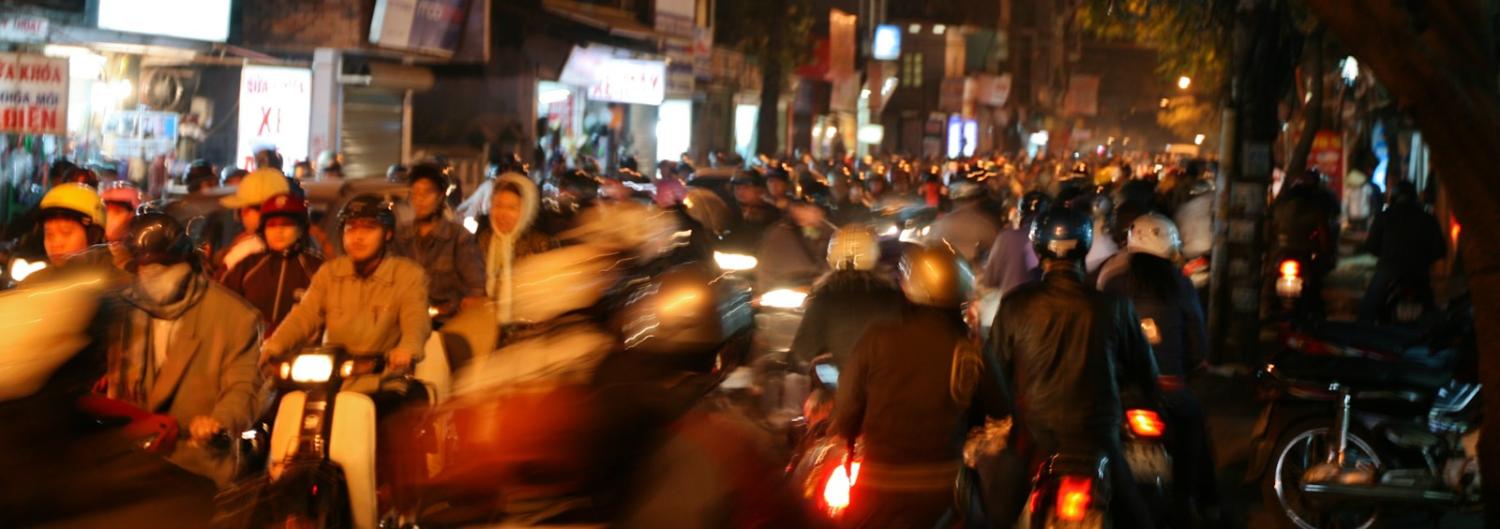Australia's Vietnamese diaspora is a remarkable element in the fast-evolving relationship between the two countries. Hanoi and Canberra are both doing what they can to help Australian Vietnamese to forge and strengthen links that can pay enormous dividends in trade and tourism.
This latest chapter in the shared history of the two countries is bright and full of potential; at least, that's the view of many. For some who came to Australia as refugees in the 1970s and 1980s - South Vietnamese who fled after the fall of Saigon - the nation remains a place of defeat and loss. Increasingly for their children and their children's children, in contrast, it is a land of opportunity and promise.
They are not alone. Last month the World Bank released its East Asia and Pacific Economic Update showed Vietnam's economy grew by 6.2% last year, will notch up 6.3% growth this year and should hit 6.4% in 2018. The last 30 years, since the Đổi Mới reforms of 1986, have seen Vietnam transform from one of world's poorest countries to a lower middle-income nation. There are still challenges aplenty - Vietnam is also known for its poor record in human rights, pollution scandals, and widespread corruption - and yet the macro achievement remains astonishing. The country has a population of 90 million and in 20 years 40 million moved out of poverty.
Of course it is not just economic expansion that separate the generations. Some 40% of Vietnamese are under the age of 24. Only 14% are over 55. For the latter, what is known throughout Vietnam as the American War, which raged from 1966 to 1975, remains fiercely personal. For their children, with their motorbikes and, increasingly, their university degrees, the war is ancient history. They live in one of Asia's most dynamic economies and they prefer to look ahead.
Scratch the surface of the Vietnamese diaspora in Australia and generational change is also apparent. Over the last month or so, it's been more marked than usual thanks to two events, only a few weeks apart in time but worlds away in substance.
Three weeks ago, as they have done every year at the end of April for the last four decades, members of the Australian Vietnamese community descended on Canberra to commemorate the fall of Saigon. The event was a sea of yellow with giant representations of the flag of the Republic of Vietnam, the state that ruled South Vietnam from 1955 to 1975. The Australian Labor MP Chris Hayes who addressed the crowd on 29 April honoured the soldiers who lost their lives, the many who died trying to flee, and those who suffer still. He said: 'What I find amazing about the Vietnamese diaspora in Australia is you do not forget the plight of the Vietnamese who still suffer under the oppression and tyranny of the Communist regime'.
Contrast this with the inaugural Australia-Vietnam Young Leadership Dialogue (AVYLD) underway in Sydney this week. This brings together 20 of Vietnam's and Australia's smartest young people from across the arts, finance, technology, education and other sectors with suitably ambitious goals to share ideas and innovation and strengthen links between the two countries.
The event is sponsored by DFAT through the Australian-ASEAN Council and has also received plenty of attention and care from DFAT in Vietnam. Australia’s Ambassador to Vietnam Craig Chittick put on an event for the Vietnamese delegates. Australian Consul-General Karen Lanyon, who every three months hosts a gathering for Australian-Vietnamese living in Ho Chi Minh City, helped in the selection process.
Both are supporters of the dialogue and the young diaspora whom, as Karen Lanyon observes, 'swim so easily' between the two cultures. You likely already know some of the names - chef Luke Nguyen, fashion designer Betty Tran. By linking these and others to initiatives like the Taste of Australia program, the diplomats figure they can build on the work of those Australian businesses that have quietly built successful enterprises in a country that many others overlooked in the rush to crack China.
Ambassador Chittick describes Australia's economic relationship with Vietnam as one in transition, shifting from that of donor/donee to a partnership that's appropriate for a middle-income country.
He acknowledges the sensitivities. 'There are members of the Vietnamese community who have expressed their opposition to me and that is their absolute right. We have different ways of organising our political system and that is not without controversy. But we have diplomatic relations with the Socialist Republic of Vietnam since 1974 - before reunification. I understand and respect there are parts of the Australian community who don't agree with that. But when I look at the tourist numbers and the commerce numbers, I see many Australians who are very comfortable with what we are doing.'
Of course generational divides by their very nature are impermanent. One generation's fixations are always overtaken by those of the next and this change is now becoming apparent in the Australian-Vietnamese community. The delegates and organisers of this week's AVYLD and their peers are motivated not just by sentiment but by opportunity. Their enthusiasm, talents and their cross-cultural consciousness, together with support from Australia's government (and from Vietnam, which is keen to smooth the path of the Viet Kieu (literally 'overseas Vietnamese'), will be influential as the Australia-Vietnam relationship evolves. As AVYLD co-founder and board chair Thao Nguyen puts it: 'This is an incredibly interesting but also challenging time for the identity of the Vietnamese diaspora. There is a lot of change underway.'

